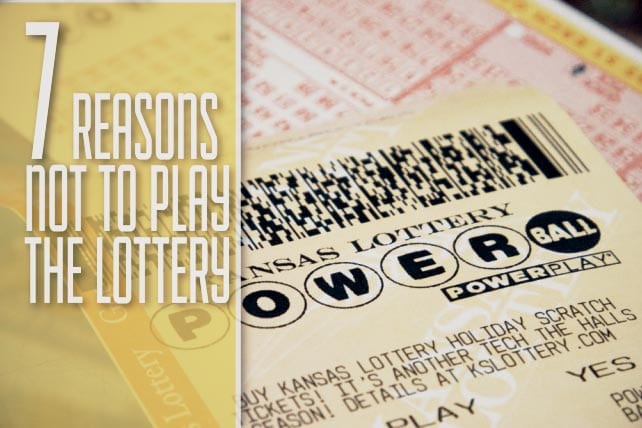Americans now spend more than $70 billion dollars annually on lotteries. That’s more than the combined spending on books, video games, and movie and sporting-event tickets. Lotteries are legal in 43 states.
“That’s more than $230 for every man, woman and child in those states—or $300 for each adult,” reports The Atlantic.
I agree with the report that this is a great shame on our nation. From time to time, the Powerball or Mega Millions lotteries rise to unusually high numbers and get fresh attention in the news.
Here are seven reasons, among others, I have often rehearsed to make the case that you should not gamble with your money in this way.
1. It is spiritually suicidal.
“Those who desire to be rich fall into temptation, into a snare, into many senseless and harmful desires that plunge people into ruin and destruction … and pierced themselves with many pangs” (1 Timothy 6:9–10).
2. It is a kind of embezzlement.
Managers don’t gamble with their Master’s money. All you have belongs to God. All of it. Faithful trustees may not gamble with a trust fund. They have no right. The parable of the talents says Jesus will take account of how we handled his money. They went and worked (Matthew 25:16–17).
3. It’s a fool’s errand.
The odds of winning are nearly 176 million-to-one. You take real money and buy with it a chance. That chance is so infinitesimally small that the dollar is virtually lost. 175,999,999 times. The smaller amounts paid out more often are like a fog to keep you from seeing what is happening.
4. The system is built on the necessity of most people losing.
According to the International Business Times, lotteries are “just another form of gambling (without any of the glamour and glitz of Las Vegas, of course). The ‘house’ controls the action, the players will all eventually lose.”
5. It preys on the poor.
The lottery supports and encourages “yet another corrosive addiction that preys upon the greed and hopeless dreams of those trapped in poverty. … The Consumerist suggested that poor people in the U.S.—those earning $13,000 or less—spend an astounding 9 percent of their income on lottery tickets … making this ‘harmless’ game a ‘deeply regressive tax’” (ibid).












